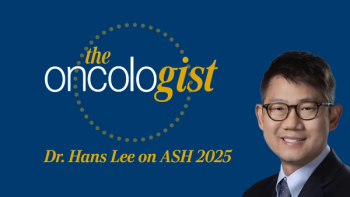
Telehealth Becomes Mainstream in Oncology Practices
David W. Dougherty, MD, MBA, discusses telemedicine in oncology after emergence of COVID-19.
David W. Dougherty, MD, MBA, a medical oncologist and the deputy director, Clinical Services, Abramson Cancer Center, and associate professor of Clinical Medicine at Penn Medicine, discusses telemedicine in oncology after emergence of COVID-19.
According to Dougherty, telehealth was not widely used before the COVID-19 pandemic. The need for social distancing, even in medical practices forced providers to shift towards providing care virtually. Since then, practices have recognized the benefits of this technology and continue to use it.
The next step, according to Dougherty, is determining how to implement telemedicine mor effectively.
Transcript:
0:07 | Prior to COVID, we were doing minimal telehealth. Then, early in the COVID experience we had changed to a majority of our visits were taking place by some form of telehealth. It became a more integral part of our ability to continue our operations and care for patients. I think there were a lot of barriers to the implementation of telehealth on a more widespread basis, prior to COVID, including not understanding how to implement the technology, or figuring out how to incorporate it into what we do.
0:27 | I think there were there were a lot of barriers to the implementation of telehealth on a more widespread basis, prior to COVID, including, not understanding how to implement the technology, not figuring out how to incorporate it into what we do. And things like licensure, so being able to provide care to patients who may live in another state, but would otherwise be coming into your clinic, across state lines. So, I think, the fact that the public health emergency relaxed that a little bit really set the stage for us to be able to feel comfortable providing telehealth to patients, wherever they were.
1:11 | I think again, it really nudged us as healthcare organizations. We are innovative when it comes to advancing the state of the science of cancer care. Oftentimes, we're less innovative when it comes to how do we change to be able to deliver care better, and I think it really forced us to just deal with that, make it happen, and not worry about all the things that otherwise an organization might be thinking why you couldn't do it. I think our mindset had to switch to say, hey, this is an opportunity for us.









































